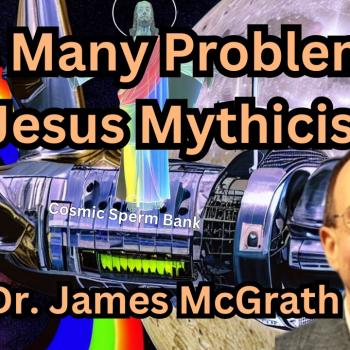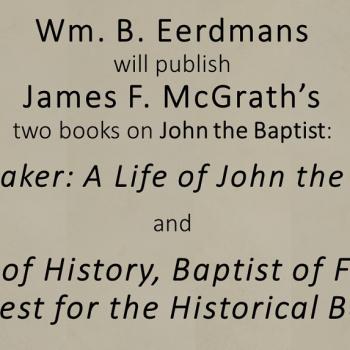When we moved from introductory matters to diving into one of the epistles in my Paul class, we started with 1 Thessalonians, usually thought to be the earliest of Paul’s letters.
This gave me the opportunity to revisit the question of whether 1 Thessalonians 2:14-16 is a post-Pauline interpolation.
It is worth noting that there is no manuscript evidence that this passage is an addition. It is also worth noting that its interruption of the train of thought is not in and of itself grounds for deeming it an interpolation: Paul’s penchant for interrupting himself and returning to his earlier train of thought is well known, and it is scarcely a trait unique to Paul for that matter. It is also worth noting that some have had clear motives for wanting the text to be post-Pauline – either in order to clear Paul of charges of anti-Semitism, or in order to fit their view that Paul never mentions Jesus’ historicity. The last standpoint clearly involves a circular approach, since Paul mentions a number of things that indicate Jesus’ historicity, and excising such things as supposed exceptions is nothing more than the disposing of inconvenient counter-evidence.
In this case, however, there are other considerations, related to content and also linguistics, which also suggest that the passage is an interpolation. And were I to defend its authenticity, it could be pointed out that, on some level, I might wish the passage to be authentic, just because of what it would mean in discussions of mythicism. And so I cannot pretend to be unbiased any more than other interpreters can.
The most interesting detail I came across in reading up on the topic was the fact that the final phrase, which is the one that seems to have in view the events of 70 CE, has a close echo in T. Levi 6:11 (in Greek, and not just in English – see F. F. Bruce’s Word Biblical Commentary, p.48): “But the wrath of the Lord came upon them to the uttermost.” Since that is a Jewish text that has undergone Christian redaction, it is impossible to tell which came first. But it is a neglected consideration when 1 Thessalonians 2:16 is discussed.
There certainly are events in the time period that might seem to be expressions of divine wrath. But even if the events of 70 CE need not be seen in the text, we must also ask whether Paul could complain about the persecution of churches in Judaea, without any mention of the fact that he had previously been involved in the persecution.
And so perhaps this is one of those instances in which the best course is an acknowledgement of uncertainty, even if one thinks that one conclusion or the other is warranted.
Of related interest, also in this epistle, and relevant to discussions of mythicism, we find Paul says in 2:13, “you received the word of God, which you heard from us.” And so, while Paul emphatically insists in Galatians that his core Gospel was not something he derived from other human beings, clearly we cannot read that (presumably dishonest) attempt to claim total independence from other human authorities into other places where Paul speaks of receiving something, even if that something is said to be the “word of God” or “from the Lord.” Clearly Paul uses such language even when a human mediator is involved.
Do you think that the 1 Thessalonians 2:14-16 is an original part of the letter, or an interpolation?












